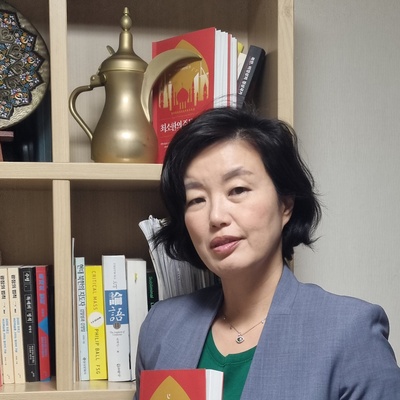
- #Global Issues
- #US Foreign Policy

▶️ Trump's "America First" Middle East Policy: A second Trump term will likely amplify transactional approaches, such as maximum pressure on Iran, support for Israel’s hawkish policies, and arms deals with Gulf nations, while rapidly withdrawing U.S. troops from the region, risking further instability.
▶️ Korea’s Expanded Global Role: Korea has proactively supported humanitarian aid and international norms in the Middle East, emphasizing nonproliferation, democracy, and human rights, aligning with its vision as a “Global Pivotal State.”
▶️ Gulf States and Korea’s Potential: As Gulf nations pursue reforms to diversify their economies and prepare for a nuclear Iran and U.S. withdrawal, Korea is well-positioned to expand economic and defense partnerships without hegemonic ambitions.
Nevertheless, judging from the Middle East policy of the first term dominated by peculiar ‘Trumpism,’ the second term will also incite populist nationalism to “make America great again” with the goal of consolidating the president’s personal political interests and domestic support base, rather than the regional allies and the international community. The policies of the first Trump administration were truly unsettling in the Middle East, and the American democratic system could not control the unexpected and unprecedented populist leader. Moreover, the second term government will show an even stronger Trumpism as it will take control of the legislative, judicial, and executive branches and fill the cabinet only with loyalists who fit the president-elect’s code. Thus, the second Trump presidency and its Middle East policy will bear more impulsive and blatant ‘America First’ agenda.
First, President-elect Trump prefers a maximum pressure approach to Iran’s nuclear development and ‘the Axis of Resistance’ proxy building-up. Moreover, as the IRGC’s assassination plot targeting him was discovered and Iranian hackers sent stollen Trump data and documents to Biden campaign officials, Trump’s level of pressure on Iran will likely increase. As Iran is known to be closer to nuclear weapons capability than ever before, the second Trump administration will likely attempt to stop it through highly intense and various sanctions and military threat rather than diplomatic means. Second, Trump is in favor of Israeli Prime Minister Benjamin Netanyahu and his hawkish policies in the Israel-Palestine conflict. In a phone call with Netanyahu in July, Trump urged, “End the war by January 20th 2025, when I will be inaugurated,” and he will push for an end to the war. He will aggressively reflect Netanyahu’s stance on the reconstruction of the Gaza Strip and demand financial support from the Gulf countries without paying much attention to the capacity building of the Palestinian Authority. Third, Trump's stance on security cooperation with the Gulf countries is quite favorable. These oil-producing countries are also willing to respond to the transactional approach in arms trade and defense cooperation with the U.S. without much discomfort while Trump will not pressure these countries to stick to human rights and democratic principles. Fourth, Trump will push ahead with the U.S. withdrawal from the Middle East without much considering the security situation of its regional allies. The withdrawal of American troops stationed in Iraq and Syria will be carried out quickly, and the influence of the IRGC there will rapidly expand.
The U.S’ current Middle East policy is caught in several dilemmas. While militarily supporting Israel, the only democratic country and traditional ally, the U.S. must eliminate the possibility of an all-out war between Israel and Iran; while protecting civilians in the Gaza Strip and southern Lebanon, the U.S. must also destroy the radical Iranian proxies deeply rooted there; while leaving the Middle East in order to focus on the Indo-Pacific region and to contain China, the U.S. must appease disappointed and confused Middle Eastern allies so that they do not side with China and Russia. Yet, Trump and the surrounding elite do not seem to be very interested in such complex and subtle tasks.
Therefore, the intense pressure on Iran’s hardline ruling coalition will strengthen the positions of the far right and hard-liner elites in Israel. The Trumpian America First policy will be enforced by forging mega-security deals with the Gulf states in a strictly transactional manner while rapidly withdrawing troops from Iraq and Syria, where the country and partners have little ability to pay. Following the erratic abolition and abandonment of the existing policies without follow-up measures, many countries in the Middle East will once again be thrown into chaos in second Trump presidency.
Then, Korea as a responsible global actor should actively support international norms and values including nonproliferation, human rights and democracy, and rule of law with its partners. Unless the Korean government consistently upholds these norms, it will encounter hindrances in finding international support in its dealings with North Korea especially in the era of deteriorating liberal order where Russia and North Korea have consolidating strategic ties. As a matter of fact, the Yoon Suk Yeol administration has projected a vision of becoming ‘a Global Pivotal State’ rejecting a limited position to the Korean Peninsula and Northeast Asia and providing global public goods.
In 2024, the Korean government expressed deep concern about Israel’s military operation in the Gaza Strip and called for the protection of civilians in accordance with international law announcing the provision of humanitarian support for Palestine to improve the situation in Gaza and the West Bank. Also, Korea voted in favor of UN Security Council resolution recommending to the General Assembly that Palestine become a full member of UN. The Korean government made it clear that it sympathizes with Palestine’s desire to join UN and reaffirmed its support for a peaceful resolution of the Israeli-Palestinian conflict and the two-state solution. Since the early 2010s, Korea, in fact, has expanded its foreign policy space beyond the Korean Peninsula and strengthened its role as a responsible middle power participating in humanitarian aid, peacekeeping, and counter-terrorism efforts in the Middle East, the world’s most fragile, weak conflict-affected area. It has responded proactively to instability and uncertainty throughout the region and promoted Korea’s comprehensive reputation defending a rules-based liberal order.
Although Korea is a new player in the region, the Gulf countries have considered Korea as a valuable partner for economic and defense cooperation, something that advanced mutual interests especially when the U.S. declared to focus on the Indo-Pacific region leaving the Middle East. The Gulf states have embarked unpresented reforms and openings to break away from an oil-dependent economy and narrowly defined Islamic society through ambitious projects to build advanced technology-driven futuristic industries using alternative energy sources and young human capitals. Although those states do not necessarily advocate democracy rhetoric, they have planned to facilitate open, transparent, and market-based development, create jobs, and reform inefficient bureaucracy.
Furthermore, the Gulf countries have prepared themselves for a nuclear Iran, its regional proxies, and the possible departure of the U.S., which required serious desperate reassessments of the existing defense and security mechanisms. Korea, then, could provide defense capabilities without necessarily transforming them into a regional hegemonic power with military adventurism and strengthened military cooperation with the Gulf partners which also valued their defense alliances with Korea’s global partners.

Dr. JANG Ji-Hyang is a Principal Fellow and director of the Center for Regional Studies at the Asan Institute for Policy Studies. Dr. Jang served as a policy advisor on Middle East issues to South Korea’s Ministry of Foreign Affairs (2012-2018). Previously, Dr. Jang taught comparative and Middle East politics at Seoul National University, Yonsei University, Ewha Woman’s University, and the Hankuk University of Foreign Studies. Her research interests include political economy of the Middle East and North Africa, political Islam, comparative democratization, terrorism, and state-building. Dr. Jang is the author of numerous books and articles, including The Essential Guide to the Middle East (Sigongsa 2023 in Korean), The Arab Spring: Will It Lead to Democratic Transitions?(with Clement M. Henry (eds.), Palgrave Macmillan 2013), “Disaggregated ISIS and the New Normal of Terrorism” (Asan Issue Brief 2016), “Islamic Fundamentalism” (International Encyclopedia of the Social Sciences 2008) and a Korean translation of Fawaz Gerges’ Journey of the Jihadist: Inside Muslim Militancy (Asan Institute 2011). Dr. Jang received a B.A. in Turkish studies and M.A. in political science from the Hankuk University of Foreign Studies and her Ph.D. in political science from the University of Texas at Austin.
